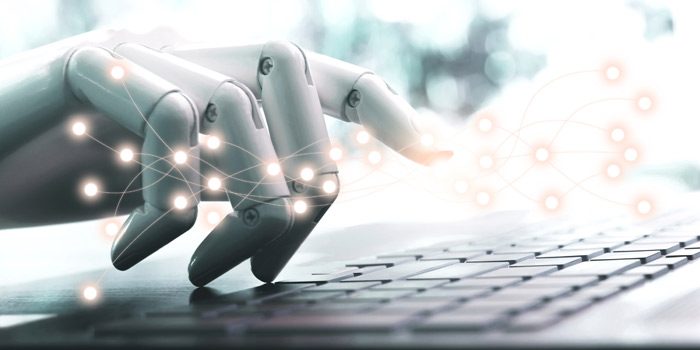
The debate of whether Artificial Intelligence (AI) should be used in education has been gaining traction recently—particularly with the media focusing on ChatGPT’s popularity as a free resource: Reuters stated in mid-February of this year that “it was estimated to have reached 100 million monthly active users just two months after launch, making it the fastest-growing consumer application in history, and a growing target for regulation.”
As AI capabilities become more advanced and more accessible, the question of whether to incorporate the technology into school systems has become more pressing. Some schools have begun to experiment with using AI-generated content in their classrooms, though the effectiveness of such content is still largely unknown. Additionally, there are a myriad of ethical considerations that come into play when considering the use of AI in educational settings—particularly by students.
Classroom AI use
One way that schools (teachers) are using AI is through adaptive learning platforms to provide personalized and interactive learning experiences. By analyzing student data, AI can create tailored learning plans that meet the individual needs of each student. This allows students to learn at their own pace and in a way that works best for them.
Another way that AI is being used in classrooms is through chatbots. These AI-powered assistants can answer student questions and provide personalized feedback on assignments and areas that need improvement. This helps to free up teacher time and allows them to focus on tasks such as lesson planning and student engagement.
AI is also being used to grade assignments and provide real-time feedback to students. This enables students to identify their strengths and weaknesses and make improvements quickly. Additionally, AI can help teachers to identify gaps in student learning and adjust their teaching approach accordingly.
Despite the benefits of AI in education, there are also some concerns around privacy and data security. Schools must ensure that they are using AI in a responsible and ethical manner, and that student data is kept safe and secure.
Some school districts may allow the use of AI writing generators for certain assignments or projects, as long as the students properly cite any sources used and the work is entirely their own. Other schools may prohibit the use of AI writing generators altogether, considering them a form of academic dishonesty.
Are schools allowing students to use AI-generated text?
The answer to this question varies depending on the school and the specific AI writing generator in question. The technology—while not necessarily new—has just recently become more available.
Some schools may allow the use of AI writing generators for certain assignments or projects, as long as the students properly cite any sources used and the work is entirely their own. Other schools may prohibit the use of AI writing generators altogether, considering them a form of academic dishonesty and plagiarism.
A recent Education Week opinion piece by Spencer Burrows, a high school history teacher and 11th grade dean, provides thoughts on the failure of AI-generated content—specifically when assignments and questions are asked in a certain way. According to Burrows, “While ChatGPT is not necessarily producing lies (intentional untruths), it is very often producing baloney. How to prevent this plain nonsense from infiltrating schoolwork? It all comes down to how you phrase your assignment questions.” So teachers should encourage students to research content for their assignments—including AI-generated results—but the students should be aware that canned responses are often not accurate and they should provide text citations and references. Even the ChatGPT developers admit its platform’s limitations and that “ChatGPT sometimes writes plausible-sounding but incorrect or nonsensical answers.”
Indiana University Bloomington has a comprehensive piece (How to Productively Address AI-Generated Text in Your Classroom) with tips for educators on how to reign-in AI bot-generated text, including recommendations for AI detection tools.
Overall, schools are recognizing the potential benefits of AI in classrooms, but they are also being careful to ensure that these technologies are used responsibly and ethically. There must be training and professional development opportunities for teachers to help them to effectively incorporate AI-based tools and technologies into their classrooms. Ultimately the goal is to help students learn in more personalized and engaging ways.
We’d like to hear from you.
Have you or your school district been using AI technologies? What have been your experiences? Any drawbacks you’ve encountered?
